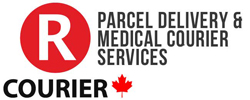Efficient and reliable delivery of surgical instruments plays a critical role in ensuring patient safety and the seamless operation of medical facilities. With the advent of parcel delivery services, healthcare providers have gained access to a convenient means of receiving medical supplies, including surgical instruments, at their doorstep.
However, ensuring the safety and sterility of these medical parcels is of utmost importance. In this blog post, we will explore the best practices for medical parcel delivery, including the importance of tracking orders and adhering to medical delivery regulations.
The Role of Parcel Delivery Services in Healthcare
Parcel delivery services have revolutionized the way medical supplies, including surgical instruments, are transported from suppliers to healthcare facilities. They offer convenience, reliability, and cost-effectiveness. However, it is crucial to understand that medical parcels contain sensitive and often sterile equipment, requiring specialized handling and transportation protocols.
Tracking Your Order Details
To maintain transparency and accountability in the delivery process, it is essential to choose a parcel delivery service that allows you to track your order details. Tracking allows healthcare providers to monitor the progress of their medical parcels and provides real-time updates on their location and estimated delivery time. This feature enables medical staff to plan and prepare for the arrival of surgical instruments, ensuring that patient care is not compromised due to delays.
Maintaining Sterility During Transit
Preserving the sterility of surgical instruments during transit is crucial to prevent the risk of contamination and potential harm to patients. When choosing a parcel delivery service, it is essential to inquire about their procedures for handling medical packages. Ideally, the service provider should have dedicated vehicles, packaging materials, and protocols that comply with medical delivery regulations.
Compliance with Medical Delivery Regulations
Medical delivery regulations exist to ensure the safe and secure transportation of healthcare-related items, including surgical instruments. It is imperative to partner with a parcel delivery service that adheres to these regulations to guarantee that the delivery process meets the required standards. Compliance may include proper training for drivers, adherence to temperature-controlled transportation for certain medical supplies, and secure storage protocols.
Special Considerations for Fragile Instruments
Some surgical instruments are delicate and require extra care during transportation to avoid damage. When choosing a parcel delivery service, healthcare providers should consider whether they have experience in handling fragile medical items. Specialized packaging materials, such as shock-absorbent cushioning and secure compartments, should be used to protect fragile instruments from impact and movement.
Collaborative Communication
Effective communication between healthcare providers and the parcel delivery service is crucial for successful medical parcel delivery. Clear instructions regarding the handling of packages, such as fragile or temperature-sensitive items, should be communicated to the delivery personnel. Likewise, the delivery service should promptly communicate any delays or issues that may impact the scheduled delivery.
Bottom Line
Parcel delivery services have become an integral part of the healthcare supply chain, ensuring the efficient and timely delivery of surgical instruments. However, healthcare providers must prioritize safety and sterility throughout the delivery process. By selecting a reputable delivery service that offers robust tracking capabilities, complies with medical delivery regulations, and employs best practices for handling delicate instruments, healthcare facilities can maintain the integrity of their medical parcels and ensure patient safety.





